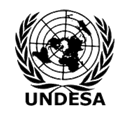At the first meeting of the Steering Committee of the Small Island Developing States Partnership (SIDS) Framework, members adopted working methods for the Committee, and the UN Department of Economic and Social Affairs (DESA) launched a standardized template for reporting by SIDS partnerships.
The SIDS Partnership Framework aims to support the follow-up of existing partnerships for SIDS' sustainable development, and to promote and advocate the launching of new ones.
 25 February 2016: At the first meeting of the Steering Committee of the Small Island Developing States Partnership (SIDS) Framework, members adopted working methods for the Committee, and the UN Department of Economic and Social Affairs (DESA) launched a standardized template for reporting by SIDS partnerships. The SIDS Partnership Framework aims to support the follow-up of existing partnerships for SIDS’ sustainable development, and to promote and advocate the launching of new ones.
25 February 2016: At the first meeting of the Steering Committee of the Small Island Developing States Partnership (SIDS) Framework, members adopted working methods for the Committee, and the UN Department of Economic and Social Affairs (DESA) launched a standardized template for reporting by SIDS partnerships. The SIDS Partnership Framework aims to support the follow-up of existing partnerships for SIDS’ sustainable development, and to promote and advocate the launching of new ones.
The framework is comprised of the Steering Committee, an annual Global Multi-stakeholder SIDS Partnership Dialogue, and a standardized partnership reporting template. The Steering Committee is open to all UN Member States and UN specialized agencies, and also invites contributions from international and regional organizations, major groups and other stakeholders. It is supported by DESA and the Office of the High Representative for the Least Developed Countries (LDCs), Landlocked Developing Countries (LLDCs) and SIDS (UN-OHRLLS).
Opening the meeting on 25 February 2016, in New York, US, Ahmed Sareer, Permanent Representative of Maldives and Co-Chair of the Steering Committee, said that since 2014, the SIDS partnership framework has leveraged 300 partnerships between SIDS, donors, and UN agencies. He stressed the need for SIDS’ voices to be represented in: the UN Economic and Social Council (ECOSOC) Dialogue on the longer-term positioning of the UN Development System; the 2016 Quadrennial Comprehensive Policy Review (QCPR) of UN Operational Activities for Development; and the High Level Political Forum on Sustainable Development (HLPF).
Nikhil Chandavarkar, DESA, presented the standardized partnership reporting template of SIDS partnerships, which was prepared in consultation with the Member States. The template has seven elements: reporting year; status of the initiative (completed, on track, cancelled); achievement at a glance; challenges faced in implementation; next steps; measurable outcomes (beneficiaries and actions); and deliverables (delivered, cancelled, changed, new). He added that all progress reports will be featured in the UN Secretary-General’s annual report on SIDS, with the yearly deadline for submission by countries being 1 May.
Many Member States expressed support for the SIDS Partnership Framework, including: Thailand for the Group of 77 and China (G-77/ China); Barbados for the Caribbean Community (CARICOM); Tonga for the Pacific SIDS (P-SIDS); EU; Australia; Belize; Jamaica; Japan; Mauritius; Mexico; Netherlands; Philippines; Samoa; Singapore; South Africa; and US. Australia said the Steering Committee could help to align the follow-up of the SAMOA Pathway and the 2030 Agenda for Sustainable Development.
Sebastiano Cardi, Permanent Representative of Italy and Co-Chair of the Committee, proposed that the Committee meet on a quarterly basis. [Steering Committee Webpage] [Reporting Template Presentation] [Press Release, Permanent Mission of Italy] [IISD RS Sources] [IISD RS Story on Co-Chairs’ Appointment] [IISD RS Story on Establishment of SIDS Partnership Framework]